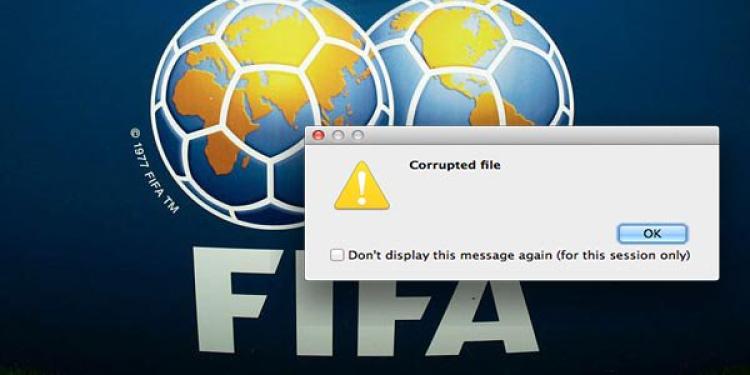World Cup 2014: Is FIFA too Corrupt to Fix?
Posted: June 3, 2014
Updated: October 4, 2017

While a lot of the negative attention surrounding the 2014 World Cup preparations has focused on the failure to deliver stadiums on time, protests have highlighted another possible problem: FIFA corruption.
Sport and gambling news are full of stories of corruption sullying major sports leagues. Of course, this isn’t the first time that FIFA has been accused of corruption and it’s sure not to be the last, yet it’s the first time that a group’s ire has been directed right at the governing body. How they react to this criticism is crucial. How did it all start, though?
FIFA was not only accused of bribery, but of selling tickets through 3rd parties and even rigging the vote that saw Sepp Blatter get another term as President. Chief accused amongst all of this was CONCACAF chief Jack Warner.
Yet it’s perhaps the allegations against a pair of Brazilians, Ricardo Teixeira and former FIFA president Joao Havelange, which bear the most relevance in today’s climate. The pair of Brazilian football administrators were found to have taken more than $41 million worth of bribes in connection with the award of World Cup marketing rights, according to a Swiss court. The most interesting thing, however, is how this was discovered.
So it was this IOC connection that revealed the sheer scale of the corruption. With FIFA brushing the corruption complaints under the carpet – these complaints first raised their head back in 1999 – it was left to the IOC ethics committee to investigate, and in 2011 they opened proceedings against the Brazilian.
Yet before the committee could report, Havelange resigned – quoting ill health (it’s worth noting he is 98 years old now) – and the IOC dropped proceedings as being outside their scope.
These allegations of corruption and bribery are not at the forefront of the Brazilian public’s mind right now, though, instead a certain World Cup law is the focus of their attention, and this law can be linked back, once again, to Havelange, Teixeira and current FIFA chief Blatter.
Interestingly, it was a Dutchman who originally laid corruption allegations against Havelange, with Peter Kronenberg, the head of the press office for the Amsterdam Olympic Games 1992 foundation (they eventually took place in Barcelona, with Amsterdam gaining the fewest votes of any bid city), stating that: “he had special wishes, wishes which were in conflict with the IOC laws."
It’s this law that has come into the public’s attention during preparations for the 2014 World Cup, too, with a very public challenge against the law made by Brazilian public prosecutor Roberto Gurgel.
Indeed, his allegations that the law is unconstitutional have gained popularity amongst a public disgusted at FIFA corruption. These protestors were probably of the opinion that the football authority could show up their own country’s corruption for what it is, yet instead they seem to have taken it to another level.
Of course, FIFA’s response was typical of the organization. “FIFA cannot comment on this pending procedure” was the sum total of an email sent out by email. Yet the people are not to be appeased by that.
There are more laws that have suffered too. Brazilian gambling laws have yet to be changed, meaning that betting on the World Cup in the country will still be technically illegal. As a comparison, Japan initiated legal changes for the 2020 Olympics as early as 2013.
There’s more, too, as FIFA partners will get benefits greater than Brazilian companies in the aftermath of the World Cup, a situation that could contribute further to a growing disparity between rich and poor in the South American country.
Instead of showing up the Brazilian government as corrupt, it seems that FIFA is simply showing them how to be even more corrupt.
On the pitch, it’s likely that the World Cup Brazil 2014 will go off perfectly. With a number of teams perfectly placed to offer a challenge to traditional power houses, it could be a roaring success. Off the pitch, however, corruption on a local, national and international level may well have combined to create an untenable situation.
That’s before we start on the 2022 World Cup, too.
Sport and gambling news are full of stories of corruption sullying major sports leagues. Of course, this isn’t the first time that FIFA has been accused of corruption and it’s sure not to be the last, yet it’s the first time that a group’s ire has been directed right at the governing body. How they react to this criticism is crucial. How did it all start, though?
A history of FIFA corruption
One of the biggest critics of FIFA is British investigative journalist Andrew Jennings. In 2006, he released a book called Foul! The Secret World of FIFA: Bribes, Vote-Rigging and Ticket Scandals, which gave details of alleged worldwide corruption.FIFA was not only accused of bribery, but of selling tickets through 3rd parties and even rigging the vote that saw Sepp Blatter get another term as President. Chief accused amongst all of this was CONCACAF chief Jack Warner.
Yet it’s perhaps the allegations against a pair of Brazilians, Ricardo Teixeira and former FIFA president Joao Havelange, which bear the most relevance in today’s climate. The pair of Brazilian football administrators were found to have taken more than $41 million worth of bribes in connection with the award of World Cup marketing rights, according to a Swiss court. The most interesting thing, however, is how this was discovered.
The disguising of FIFA corruption
Joao Havelange was not only president of FIFA, but the longest serving active member of the International Olympic Committee (IOC) at the time of his resignation in 2013. He had been part of the organization since 1963.So it was this IOC connection that revealed the sheer scale of the corruption. With FIFA brushing the corruption complaints under the carpet – these complaints first raised their head back in 1999 – it was left to the IOC ethics committee to investigate, and in 2011 they opened proceedings against the Brazilian.
Yet before the committee could report, Havelange resigned – quoting ill health (it’s worth noting he is 98 years old now) – and the IOC dropped proceedings as being outside their scope.
These allegations of corruption and bribery are not at the forefront of the Brazilian public’s mind right now, though, instead a certain World Cup law is the focus of their attention, and this law can be linked back, once again, to Havelange, Teixeira and current FIFA chief Blatter.
The World Cup Law
It was after a report on British television program Panorama that FIFA’s true level of corruption came to a greater audience. Along with the aforementioned allegations against senior officials, one particular piece of news attracted a lot of attention.Joao Havelange was the 7th President of FIFAIndeed, it seems that FIFA was secretly demanding a set of drastic laws with each potential host country that gave economic assistance to their partner organizations and sponsors. Yet the public would not have known about this had the Dutch government not publicly rejected the law changes and ousted FIFA for what they really were.
• He held FIFA office between 1974 and 1998
• He was member of the IOC between 1963 and 2011
• Was President of Brazilian Football Confederation between 1958 and 1973
Interestingly, it was a Dutchman who originally laid corruption allegations against Havelange, with Peter Kronenberg, the head of the press office for the Amsterdam Olympic Games 1992 foundation (they eventually took place in Barcelona, with Amsterdam gaining the fewest votes of any bid city), stating that: “he had special wishes, wishes which were in conflict with the IOC laws."
It’s this law that has come into the public’s attention during preparations for the 2014 World Cup, too, with a very public challenge against the law made by Brazilian public prosecutor Roberto Gurgel.
Indeed, his allegations that the law is unconstitutional have gained popularity amongst a public disgusted at FIFA corruption. These protestors were probably of the opinion that the football authority could show up their own country’s corruption for what it is, yet instead they seem to have taken it to another level.
Of course, FIFA’s response was typical of the organization. “FIFA cannot comment on this pending procedure” was the sum total of an email sent out by email. Yet the people are not to be appeased by that.
Protests on the streets
The chances are high that Brazilians will take to the streets during the World Cup to demonstrate at the wastage of public funds on what is likely to amount to nothing more than a vanity project. With vital infrastructure projects put on hold to complete hideously expensive stadiums in locations without major sports teams to support, protests are surely justified.There are more laws that have suffered too. Brazilian gambling laws have yet to be changed, meaning that betting on the World Cup in the country will still be technically illegal. As a comparison, Japan initiated legal changes for the 2020 Olympics as early as 2013.
There’s more, too, as FIFA partners will get benefits greater than Brazilian companies in the aftermath of the World Cup, a situation that could contribute further to a growing disparity between rich and poor in the South American country.
Instead of showing up the Brazilian government as corrupt, it seems that FIFA is simply showing them how to be even more corrupt.
On the pitch, it’s likely that the World Cup Brazil 2014 will go off perfectly. With a number of teams perfectly placed to offer a challenge to traditional power houses, it could be a roaring success. Off the pitch, however, corruption on a local, national and international level may well have combined to create an untenable situation.
That’s before we start on the 2022 World Cup, too.
Related content
Subscribe
0 Comments












